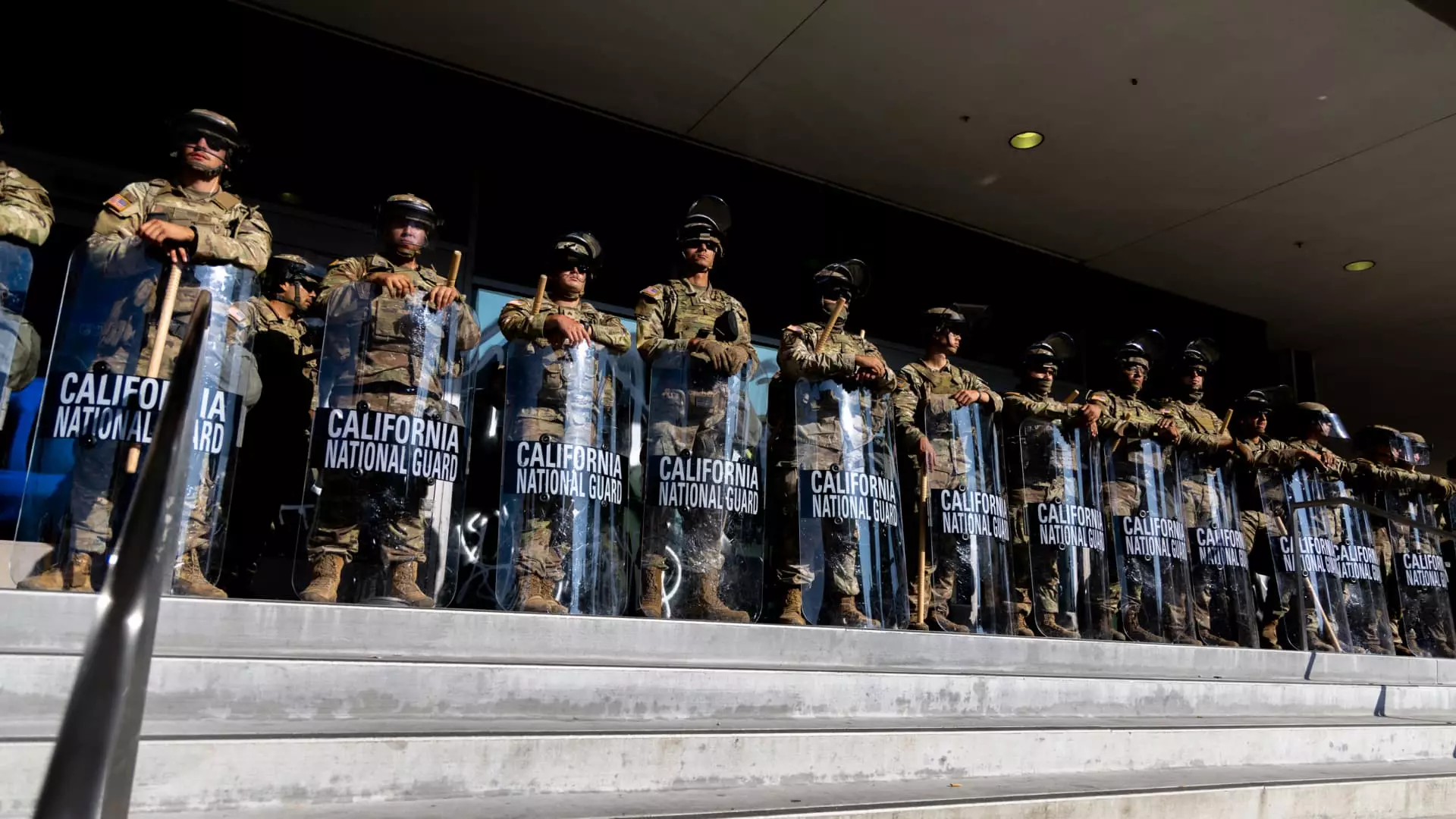The recent decision by the 9th U.S. Circuit Court of Appeals to allow President Donald Trump to deploy National Guard troops to Los Angeles is a glaring signal of a potentially grave erosion of state authority. This ruling permits a president to exercise control over a state’s National Guard without the consent of its governor—a situation that has not been seen since 1965. By siding with the Trump administration, the court is not merely approving the president’s authority but is also paving the way for future overreach that could escalate beyond the current situation.
The deployment of National Guard troops was initially justified as a response to violent protests following immigration raids. Yet, we must consider whether this rationale stands up to scrutiny. The very notion that violent protests—while undeniably concerning—can equate to “rebellion” warrants a thorough examination. In his ruling, U.S. District Judge Charles Breyer articulated that the protests did not rise to the level of an insurrection, which is a critical declaration that must not be understated. Underlining this point effectively draws the line between safeguarding public order and the casual detachment of state control over national assets.
Disregard for Local Authority
California Governor Gavin Newsom’s opposition to Trump’s unilateral decision is emblematic of a broader conflict between state and federal authority. The governor argued that the president’s action was not only unwarranted but also inflamed tensions in a state grappling with a calamitous history of immigration-related disputes. It is essential that governors retain the prerogative to manage their own state forces—the National Guard is not merely an extension of the federal military machine; it is a vital resource that should reflect the values and needs of the state it serves.
What we are seeing here is a disturbing trend of centralizing control in the hands of federal powers, often at the expense of local governance. This phenomenon raises alarm bells; if the executive can dictate the mobilization of state troops without the consent of local leaders, where does that leave the doctrine of federalism? Shouldn’t states be granted the autonomy to decide how to manage such sensitive matters, especially when they involve the most fundamental rights of their residents?
Arguments Lacking Substance
The Trump administration’s rationale for deploying these troops centered around the need to “restore order” in a state that has been largely peaceful compared to the protests that have erupted in other parts of the country. However, this assumption is predicated on the notion that federal intervention is an appropriate solution to local dissent. What is profoundly troubling is how such arguments often sidestep a deeper analysis of the root causes of discontent. By merely framing the protests in terms of public safety, the administration neglects to engage with the critical issues to which these protests are responding, such as systemic inequality, police brutality, and immigration policies that disproportionately affect marginalized communities.
Yet, the decision by the appeals court raises questions about the balance of power and the judiciary’s role in adjudicating matters where constitutional interpretations clash. The implication that courts should refrain from second-guessing presidential decisions essentially invites a one-sided narrative where executive power becomes unchecked.
Implications for Democracy
The broader implications of this decision are significant. It embodies a threshold that, once crossed, can be perilous for a democratic society. When the president can dispatch troops to a city—over the explicit objection of its governor—what programming can serve as an impediment to similar actions in the future? This ruling erodes the delineation between state and federal governance, and it throws into question the fundamental rights of states to address localized issues independently from federal oversight.
Ultimately, while the Trump administration has made a case for the deployment of National Guard troops based on police action and civil unrest, it is crucial that our courts uphold the principles of checks and balances that our democracy is founded on. The precedents set by this ruling could have dire consequences for the nature of political discourse in the United States, fostering an environment where state autonomy is increasingly quashed. In such a scenario, we must ask ourselves: at what cost is “order” being achieved?

Leave a Reply